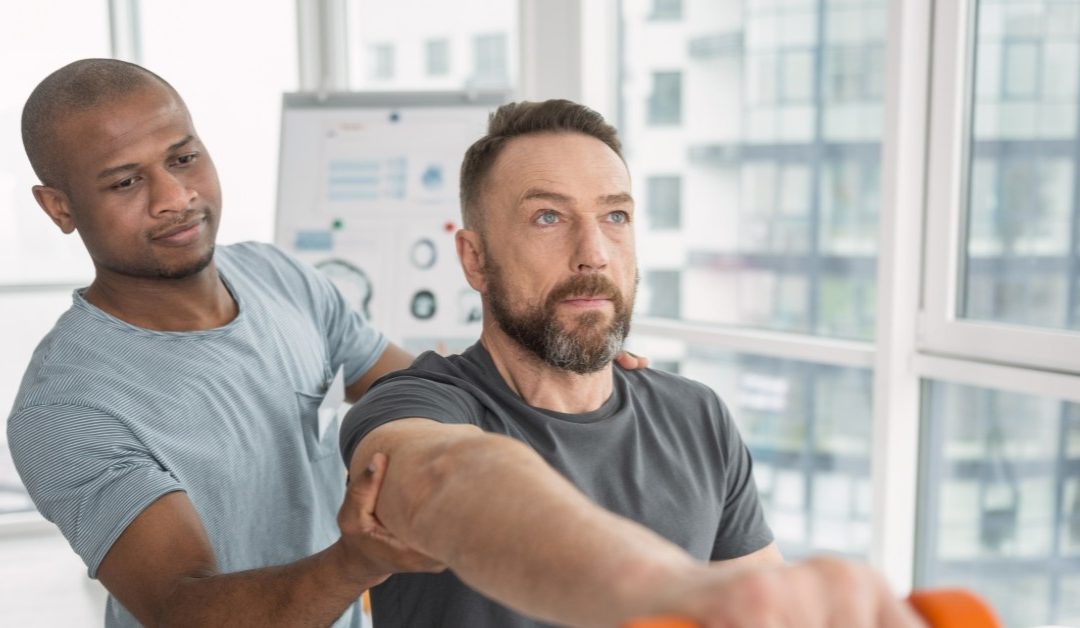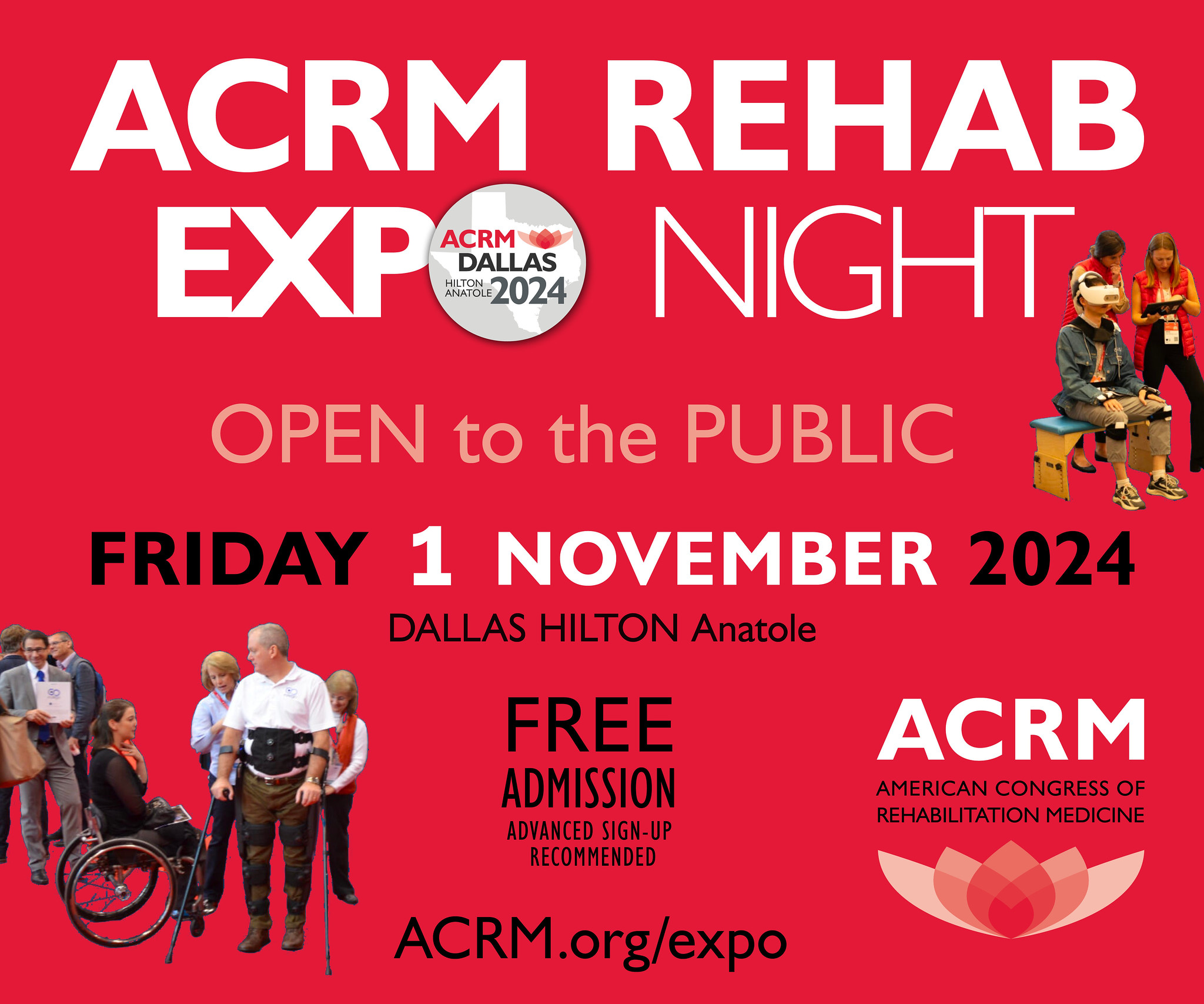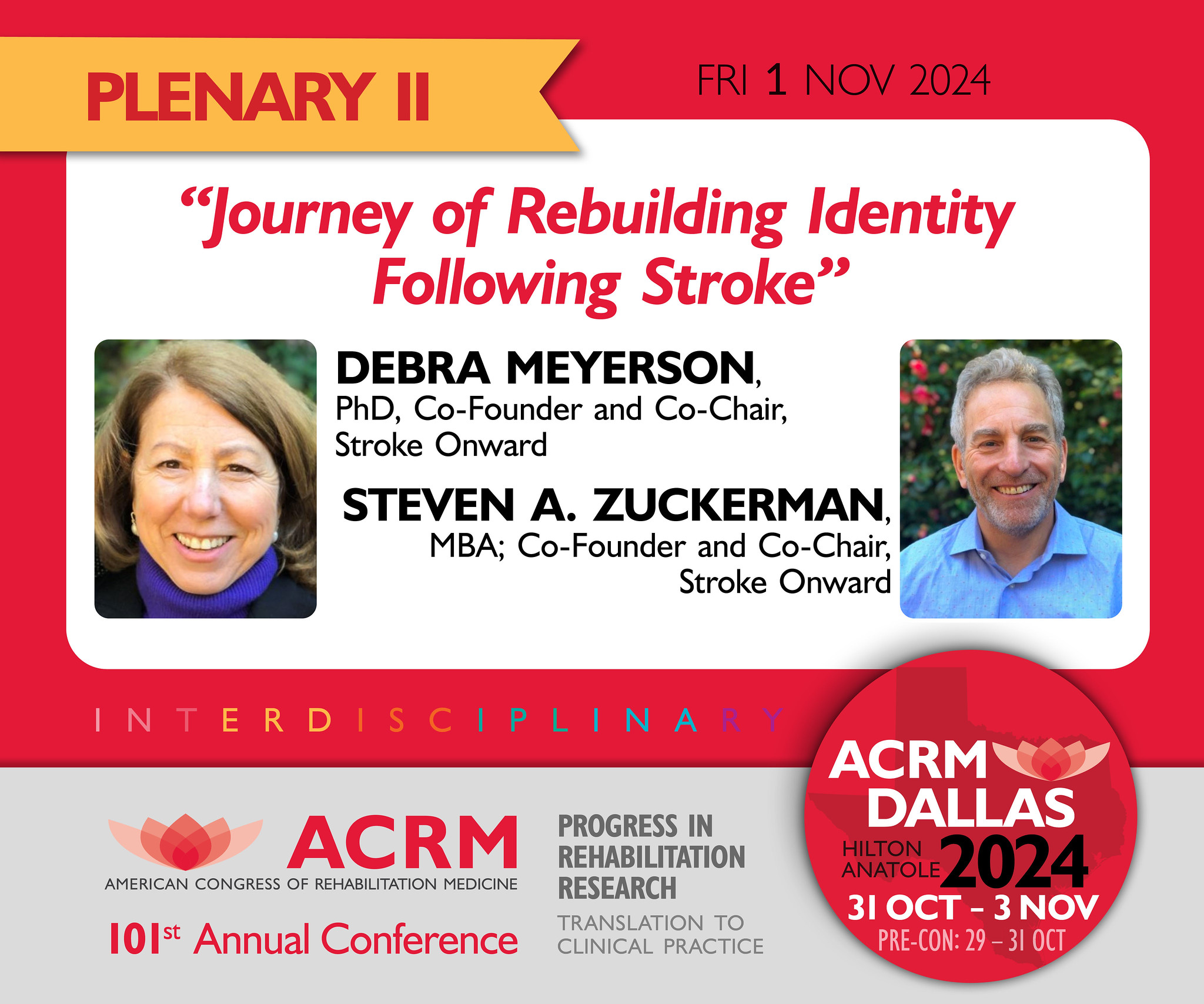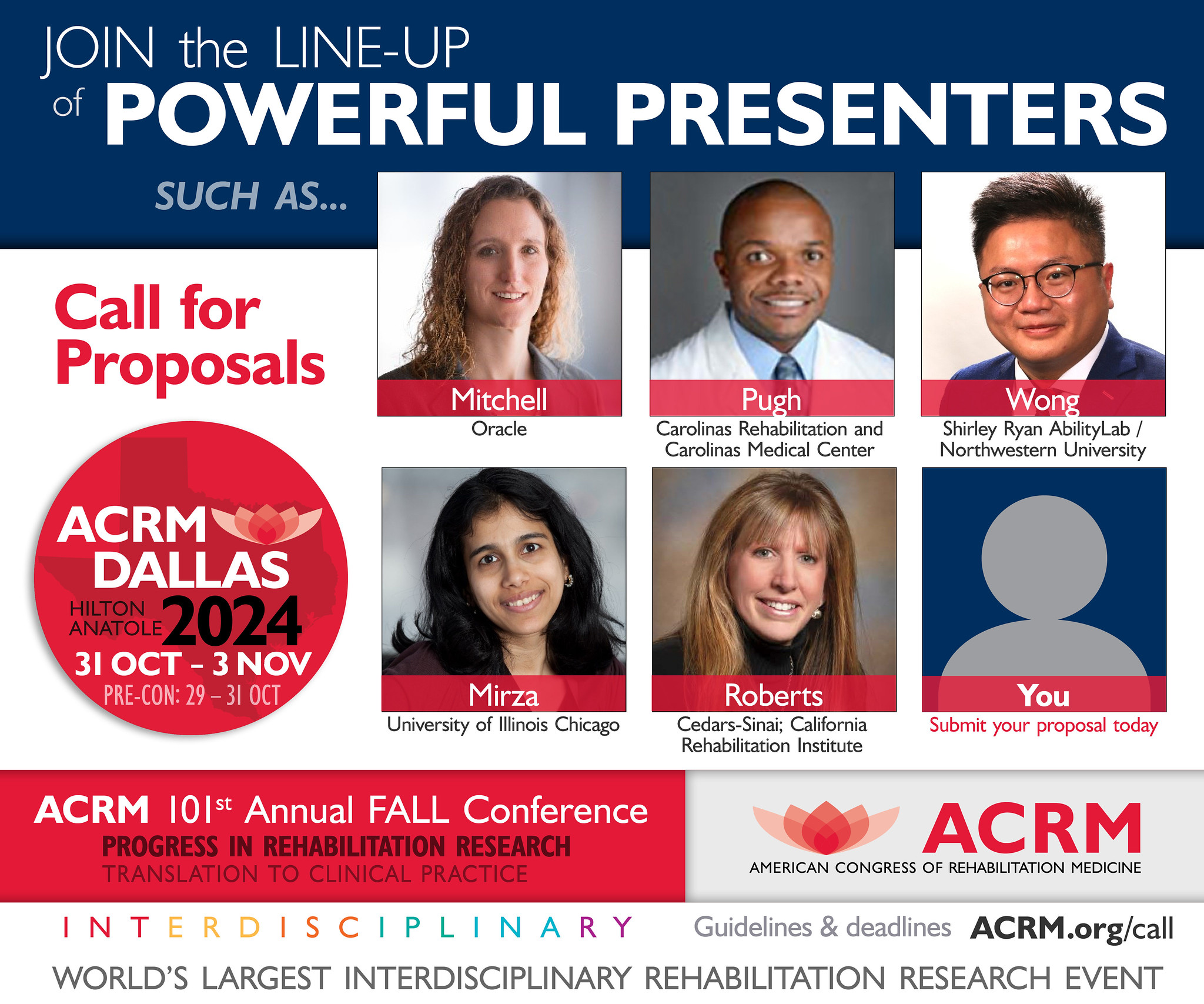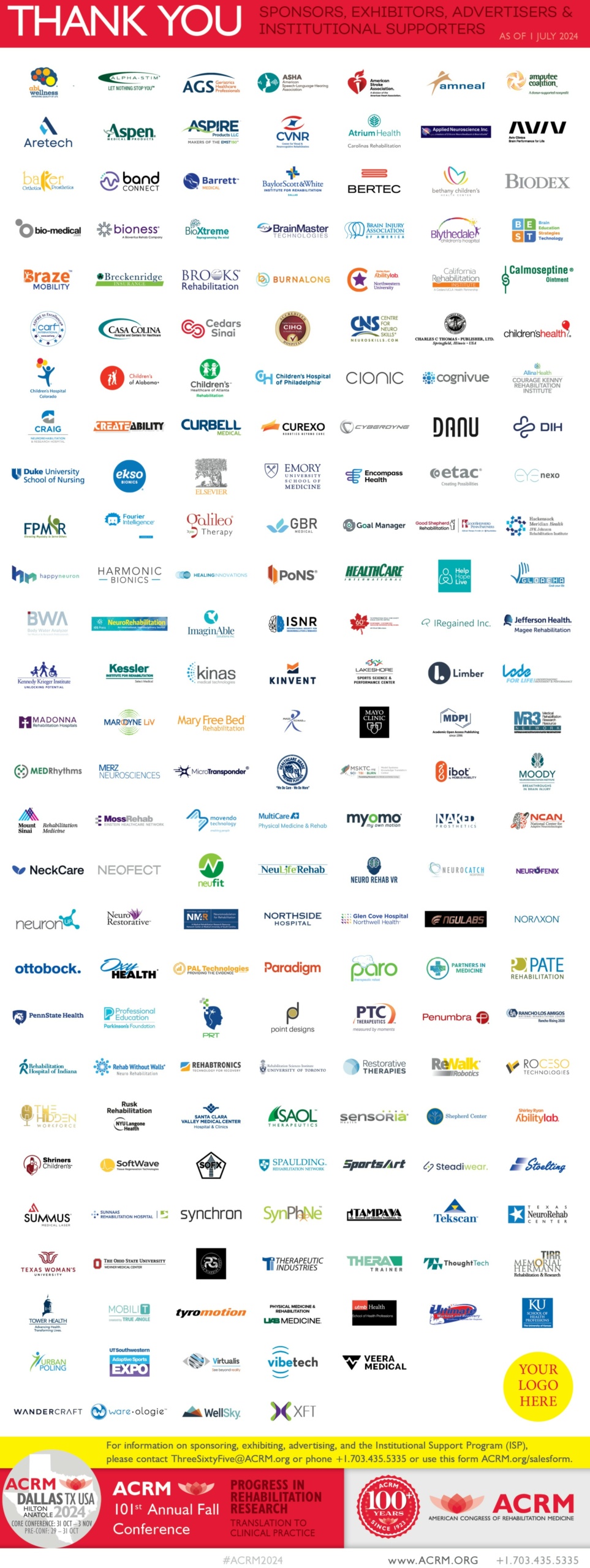Rehabilitation is a six-syllable word that not many people say. It’s shortened to “rehab.” Still, many people who have never undergone rehab are unsure what exactly rehab entails, and they can be anxious or frightened by it.
ACRM, or American Congress of Rehabilitation Medicine, is a non-profit association dedicated to improving the lives of the disabled. For almost 100 years, we’ve been an advocacy organization for those who are disabled. We are an inclusive, interprofessional group with the highest-rated rehabilitative medical journal in the world. Below, we’ll go over some tips on how to help new patients when they are new to rehabilitation. Contact us today to learn more!
TIPS TO HELP PATIENTS WHO ARE NEW TO REHABILITATION
Explain Everything
Most people who enter rehabilitation are recovering from some sort of injury. This can be a back injury, a traumatic brain injury, spinal cord injury, limb restoration rehabilitation, and more. Thus, it’s crucial to explain everything that you are doing from the moment that they arrive with the initial paperwork to the moment that they leave with further instructions. This can take some time to get used to if you are not used to explaining the process step-by-step, but this just comes with practice. Soon, explaining the rehabilitative process will become second nature.
Consistency
Patients can become completely overwhelmed by the rehabilitative process altogether, especially if they are new to it. Thus, most of what you say as their rehabilitative physician they will probably not remember due to the anxiety they are feeling. Thus, it will be important to emphasize the two or three items or action items you want them to remember and say it often. Repetition will be key; otherwise, they will show up to their next session having not done any at all.
Write It Down
Most rehabilitative physicians invest in some sort of printed summary for the patient to take home after their appointment. These papers often include the action items and/or exercises that you need your patients to complete before your next session. Also, as a rehabilitative physician, if you could include any visuals for the patient of the exercises, rather than just words, that would be helpful. Many patients are visual so by providing a visual reference of the certain exercises you want your patients to do could be invaluable for them to execute them correctly. Furthermore, if you have links to YouTube videos of someone performing the actual physical therapy exercises, that could be super helpful as well.
Set Reminders
With today’s technological advances, there really is no good reason not to utilize all of the tools at your fingertips. As a rehabilitative physician, you are probably already using a lot of these resources for appointments, billing, and the like. However, you can also utilize patients’ emails and phone numbers to help them remember their exercises and to check in.
With so many people attached to their phones, you can send an email and/or a text message and have a good chance that your patients will actually read it. Here, you can remind them to do their exercises, appointment reminders, and reminders to set their appointments. Many patients just don’t set rehabilitation appointments, which means they aren’t getting the treatment that they need. Just by sending a short note of about three or four lines, you will not only be encouraging your patient to do their homework, but you’ll also be sending the message that you care.
Help Them With Their Goals
If someone has just entered brain injury rehabilitation, spinal cord injury rehabilitation, cognitive rehabilitation, they are most likely extremely downtrodden. Odds are, their lives have been turned upside down to their injury, and they are in no mood to set goals, let alone work towards them. As a rehabilitative physician, you understand how important it is to have a goal — no matter how small — to work towards. If your patients don’t have a goal, it will be a hard, uphill battle you will have to climb, sometimes mentally more so than emotionally.
Therefore, preferably at your first appointment, you’ll want to take some time with your new rehabilitative patient and go over their goals with them. If they are wishy-washy and in no mood to set them, set the first few for them and make them incredibly easy to achieve. Then, celebrate with them when they do achieve their goals. Soon enough, your patients will get into a rhythm and feel positive about their prospects and where they are heading. This is a very important part of beginning rehabilitation therapy.
JOIN ACRM TODAY
ACRM is open to anyone who has a heart for helping those who are injured, are disabled, or need help in general. Whether you are a caregiver, a rehabilitative physician, a physical therapist, an occupational therapist, a nurse, a mom, a parent, or anyone, you are welcomed. We currently have over 3,000 members from more than 65 countries and a thriving special interest networking group. We promote evidence-based practices and practice-based research. Our journal, the Archives of Physical Medicine & Rehabilitation, is an invaluable resource for anyone in the rehabilitative fields. It is, in fact, the most-cited journal in rehabilitation.
ACRM holds regular meetings and an annual conference so that our members can come together and learn from one another. Our annual conference is packed with dozens of instructional courses, all-star presenters, cognitive rehabilitation training, certified brain injury training, early career development courses, receptions that are great networking opportunities, educational break out sessions, and so much more. It’s a huge event that is open to all who are interested. This year, our annual conference will take place in Atlanta in October, and we invite you to check it out here. We have some of the world’s best minds on rehabilitation presenting, and we know it will be an action-filled weekend full of learning and making connections.
With so much going on, you don’t want to miss out. We invite you to join the American Congress of Rehabilitation Medicine today!


